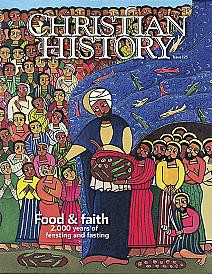"FIVE MINUTES" BECAME TWENTY-TWO YEARS FOR NOBLE ALEXANDER
NOBLE ALEXANDER (1934–2002) was a Seventh Day Adventist religious leader in Cuba. In an interview with Ronald Geraty, he described Castro’s coming as a tragedy.
Castro arrested many Christians and political opponents and held them for long years in prison. Noble Alexander’s turn came on this day, 20 February 1962. The men who picked him up said he was wanted for five minutes’ questioning. However, it quickly became apparent more than a few questions were at stake.
Interrogators noted he had preached a sermon describing Satan’s rebellion in heaven as demanding equality with God. They alleged that this was an allusion to Castro and the Communist claims of equality. After months in custody Alexander was finally given a formal trial. The process was a sham:
“According to our records you conspired to place a bomb in President Fidel Castro’s plane in 1963.”
“In 1963?” said Alexander. “I admit to being a spiritual and a physical being, but as of yet have never managed to be in two different places at the same time.”
The prosecutor scowled. “Explain yourself.”
“If you check your prison records, sir,” he said, “you will see I have been detained by the military since February of last year, 1962. And you say that this year, 1963, I plotted to put a bomb in Castro’s plane?”
In spite of Alexander’s obvious innocence and the impossibility of the alleged attempt, the show trial went on. He was even struck across the mouth when he responded to a racial slur. Afterward, his court-appointed attorney, completely in league with the authorities, rose to speak in his behalf.
“Sir,” he addressed the judge, “Seeing that my client is obviously guilty of all charges made against him by the state, be merciful. He well deserves to sacrifice his life for what he did. Instead, as a member of this merciful court, I am going to request that he receive only twenty years of hard labor for his crimes against the state.”
“The judge nodded in agreement. ‘So be it. Humberto Noble Alexander, you have been tried and convicted of conspiring to assassinate President Fidel Castro and of aiding and abetting the flight of counter-revolutionaries, and the most serious crime of all, distributing opium to the Cuban people...’”
“Opium” was a reference to religion, Marx’s so-called “opiate of the masses.” The judge then sentenced Alexander to twenty years of severe punishment.
Noble Alexander would write, “[A] wellspring of joy rose up inside me. God had blessed me with a secret privilege far beyond any I could have imagined....I was not suffering unjustly for mistakes I was falsely accused of making, but for the Gospel of Jesus Christ.”
In prison, Alexander was ordained by the Seventh Day Adventists. He established churches and pastored fellow prisoners during his twenty year sentence and during the two additional years he was held after his sentence ran out. At various times, he was thrown into solitary confinement, once for two years for refusing to turn over a hidden Bible.
He refused re-education (Communist indoctrination) and was often tortured. Once he was dunked in an icy lake until he passed out. Another time he was hit by a bullet when angry guards fired into his prayer group. With other prisoners he ate appalling food but, in spite of near starvation, refused pork. Like the rest, he endured rats, cockroaches, and lizards in his cell.
Eventually Alexander was one of twenty-six political prisoners whose release Jesse Jackson helped negotiate. After coming to America, he wrote an autobiography, I Will Die Free. He died on 20 July 2002 in Connecticut.
—Dan Graves
----- ----- -----
For a fascinating aside on the Adventists, read "The sacred duty" in Christian History #125, Food and Faith






